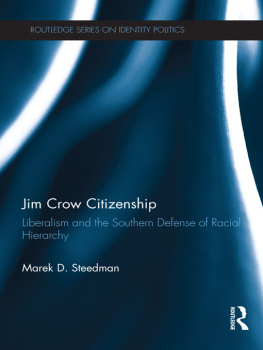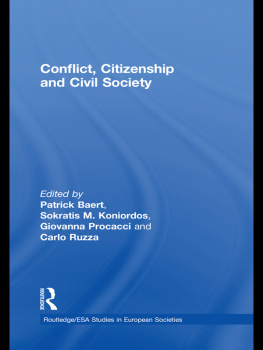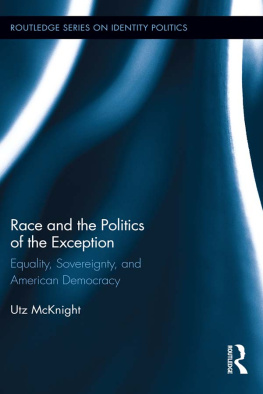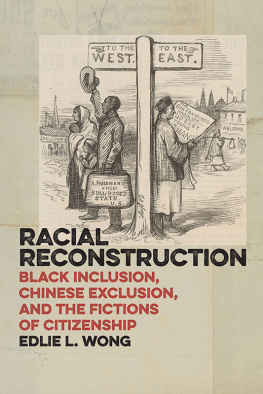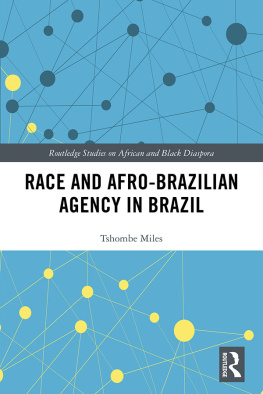Contents
Guide
Pagebreaks of the print version
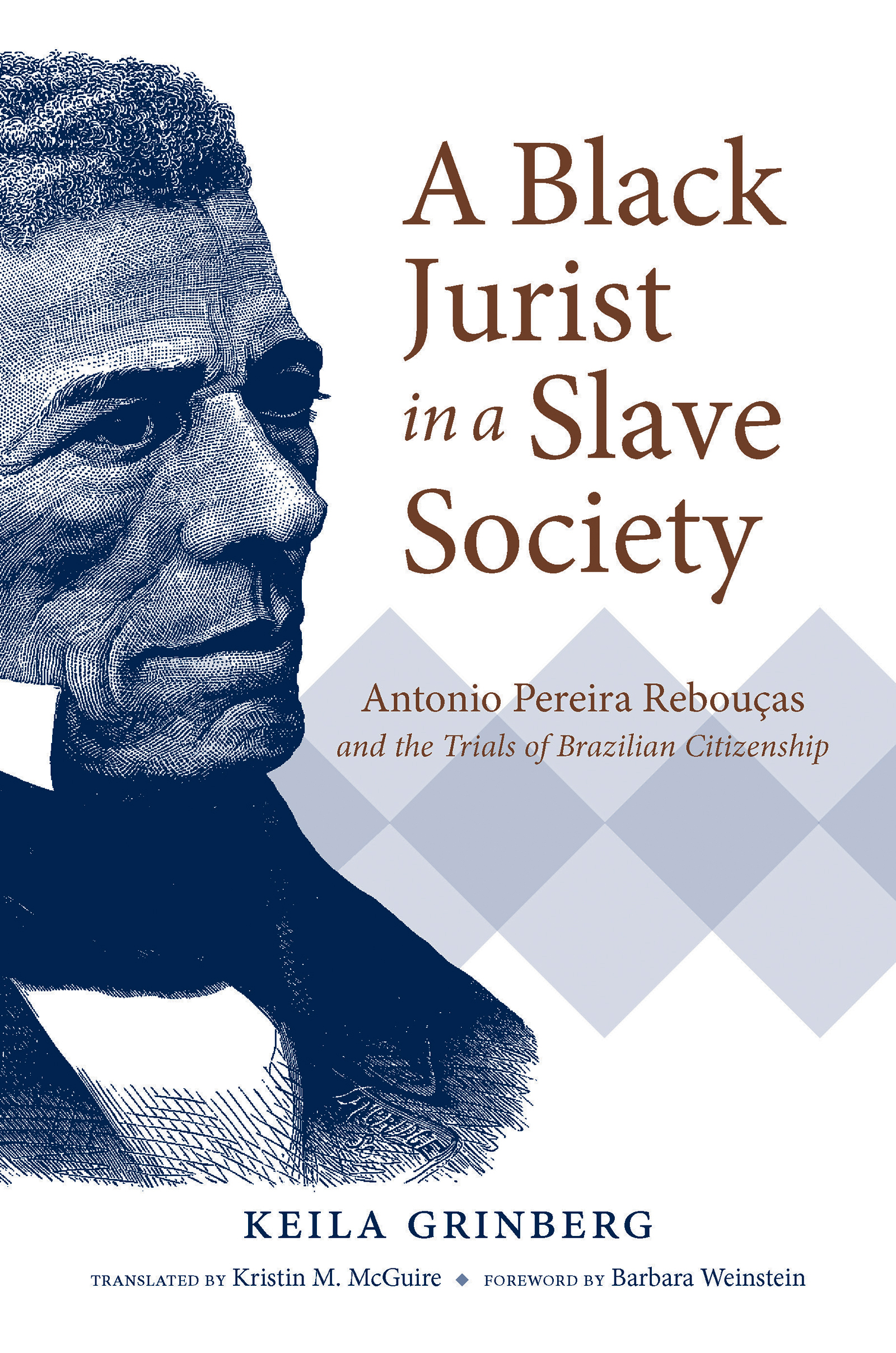
A Black Jurist in a Slave Society
A book in the series Latin America in Translation / en Traduccin / em Traduo
This book was sponsored by the Consortium in Latin American and Caribbean Studies at the University of North Carolina at Chapel Hill and Duke University.
A Black Jurist in a Slave Society
Antonio Pereira Rebouas and the Trials of Brazilian Citizenship
KEILA GRINBERG
Translated byKRISTIN M. MCGUIRE
Foreword byBARBARA WEINSTEIN
The University of North Carolina Press Chapel Hill
Translation of the books in the series Latin America in Translation / en Traduccin / em Traduo, a collaboration between the Consortium in Latin American and Caribbean Studies at the University of North Carolina at Chapel Hill and Duke University and the university presses of the University of North Carolina and Duke, is supported by a grant from the Andrew W. Mellon Foundation.
2019 The University of North Carolina Press
All rights reserved
Set in Charis by Westchester Publishing Services
Manufactured in the United States of America
The University of North Carolina Press has been a member of the Green Press Initiative since 2003.
Library of Congress Cataloging-in-Publication Data
Names: Grinberg, Keila, author. | McGuire, Kristin, translator. | Weinstein, Barbara, writer of foreword.
Title: A black jurist in a slave society : Antonio Pereira Rebouas and the trials of Brazilian citizenship / Keila Grinberg ; translated by Kristin M. McGuire ; foreword by Barbara Weinstein.
Other titles: Fiador dos brasileiros. English | Latin America in translation/ en traduccion/em traducao.
Description: Chapel Hill : University of North Carolina Press, [2019] | Series: Latin America in translation / en traduccion / em traducao | Translation of: O fiador dos brasileiros : cidadania, escravidao e direito civil no tempo de Antonio Pereira Rebouas / Keila Grinberg. Rio de Janeiro : Civilizacao Brasileira, 2002. | Includes bibliographical references and index.
Identifiers: LCCN 2019004290| ISBN 9781469652764 (cloth : alk. paper) | ISBN 9781469652771 (pbk : alk. paper) | ISBN 9781469652788 (ebook)
Subjects: LCSH: Rebouas, Antonio Pereira, 17981880. | Lawyers BrazilBiography. | SlaveryLaw and legislationBrazilHistory19th century. | CitizenshipBrazilHistory19th century. | Civil rightsBrazilHistory19th century. | BrazilPolitics and government18221889.
Classification: LCC KHD304.R43 G7513 2019 | DDC 340.092 [B]dc23 LC record available at https://lccn.loc.gov/2019004290.
Cover illustration: O sr Antonio Pereira Rebouas, O Novo Mundo (newspaper), 22 February 1875, 1. Brazil National Library.
It is impossible to consider the Brazil of Dom Pedro I, Dom Pedro II, and Princess Isabel, the Brazil of the campaign for the abolition of slavery and for the agitation for the republic, and too, of the courtships between a young lady on the verandah speaking the language of love with her fan, flower, or handkerchief and a young gent on the corner in high hat and frock coat, without taking into account two great forces that are new and triumphant, and sometimes conjoined in one: the man of letters and the mulatto.
Gilberto Freyre, Sobrados e Mucambos (The Mansions and the Shanties), 354
Contents
Graph and Table
Graph
Table
Foreword
One of the central goals of historians inspired by the social movements of the past half-centurymovements organized around race, gender, sexualityhas been to rescue from historical oblivion the lives and significance of individuals who were not white, male, and upper class. More recently, historians have sought to go beyond what some have critically called a salvage operation to consider how the writings and deeds of these previously forgotten individuals impel us to rethink our notions of the past and of the very identities that made us interested in our research subjects in the first place. Keila Grinbergs magisterial study of Antonio Pereira Rebouas and the political and juridical worlds that he inhabited and shaped is a stellar example of a work that both restores a remarkable individual to his rightful place as a historically significant figure and goes far beyond a simple act of recuperation to illuminate the tensions and contradictions of the Brazilian nation-building project.
At first glance, it seems incredible that Antonio Pereira Rebouas would have been in need of rescue at all since he was undoubtedly one of the most visible and influential men of acknowledged African descent in any slave society in the Americas. He was an eminent jurist, an advisor to the emperor, an elected legislator; to identify a man of color of similar prominence in the nineteenth-century United States, we would have to cite someone such as Frederick Douglass, a familiar figure to anyone with even a passing interest in African American history. But perhaps the juxtaposition of Rebouas and Douglass can help us understand why the former languished in relative obscurity until the publication of Keila Grinbergs book, as well as why his son, the noted engineer and celebrated abolitionist Andr Rebouas, is much better known to students of Brazilian history than his father. While Douglass was himself a man of great complexity and occasional contradictions, he undeniably corresponds to some of our principal expectations with regard to prominent black historical actors, having escaped from bondage and then become an implacable foe of slavery and a crusader for the rights of African Americans and women. Whatever his particular idiosyncrasies, Frederick Douglass certainly qualifies as a champion of the oppressed.
Antonio Pereira Rebouas, on the other hand, presents a genuine challenge to our standard expectations, as Keila Grinbergs study makes evident. Not only was he never a slave (which was true of many Afro-descendants in early nineteenth-century Brazil), but he never spoke out against slavery, regarding it as a property relation protected by the liberal legal precepts that he held dear. What he did oppose, consistently and vociferously, was a racialized justification for slavery, and any form of bias or disadvantage based on racial difference. Throughout his career as a lawyer, writer, and politician, he championed the claims of both descendants of slaves and ex-slaves to full citizenship. Yet even though he himself suffered various political attacks and personal slights because of his color, and clearly spoke from his position as a racialized person, he insisted on divorcing the problem of race from the problem of slavery, or at least attempted to do so. Furthermore, he collaborated in the repression of popular political revolts and defended the rights of slaveholders to their human property. In other words, it would be difficult to venerate Antonio Pereira Rebouas as a champion of the oppressed. Fortunately, the historian who took on the crucial task of exploring his role in Brazils political and legal construction did so not to create a transcendent hero, but to consider how his ideas and actions and his personal trajectory reflected a central problem of the new Brazilian nationthe tension between liberalism and the persistence of human enslavement.
Given Rebouass insistence on the irrelevance of race in the allocation of rights, one can appreciate why liberalism, with its promise of equality before the law, appealed to him, but also why, given his precarious position in Brazilian circles of prestige and authority, he felt compelled to defend liberalism in all its connotations. Thus, even as he opposed the transatlantic slave trade and supported legal protections for slaves who sought to purchase their freedom, he never challenged the sanctity of private property, including in human flesh.



